Entrepreneurial Confessions
Johann Olav Koss
Right To Play International founder and CEO
2012 Ontario Ernst & Young Entrepreneur
Of The Year recipient for Social Entrepreneurship
Johann Olav Koss created a global humanitarian organization that puts the ball in the court of marginalized, disadvantaged children in more than 20 countries by making sport and play a right, not a privilege. Right To Play’s pragmatic founder was deemed “One of 100 Future Leaders of Tomorrow” by TIME magazine.
www.righttoplay.com
You’ve found success in many arenas, first as an Olympic speed skater and now as the CEO of a renowned humanitarian organization. What is your attitude towards achieving your goals, regardless of the realm?
Koss: I believe that in order to achieve your goals you must be willing to work incredibly hard, stick to your vision and be able to see solutions where others see problems. These are the three key areas that helped me to succeed when I was an athlete and have helped me now in my current role at Right To Play.
What is one factor most entrepreneurs overlook but you view as essential?
Koss: I believe that it is important to fail — to occasionally not experience success. These are the opportunities we have in life to learn and to grow as people. I believe that everything you do in life is for a reason and gives you the experience and the knowledge to tackle future problems. Everything that has happened in the past makes you the person you are today. I have learned more from my failures than my successes.
What advice do you give aspiring entrepreneurs?
Koss: Be willing to work incredibly hard and be passionate about what you’re doing. Starting an organization and getting other people to believe in what you’re doing and support you is a lot of hard work, but if you really care about what you’re doing and are willing to persevere, you will be successful. You don’t need a fully finished plan before you start — it is impossible to know everything you need to do anyway. The most important thing is to start living your entrepreneurial dream.
What book has given you the biggest bang for your entrepreneurial buck?
Koss: The book that has had the biggest impact on me is the biography of Fridtjof Nansen. He was an amazing Norwegian.
Shaun Ricci and Somen Mondal
Field ID founders
2012 Ontario Ernst & Young Entrepreneur
Of The Year recipients for Emerging Entrepreneur
Independence-craving co-workers Somen Mondal and Shaun Ricci left their consulting company careers to plant their entrepreneurial seed in Field ID, a paperless approach to safety that combines software, hand-held devices and the Internet to automate safety compliance inspection.
www.fieldid.com
How important is it to choose the right partner?
Ricci: I think that finding the right partner is integral. You need somebody that you can completely trust to do things when you can’t or you’re not around. So how did we know? Well, I guess we didn’t!
Mondal: I think it’s important that partners have complementary skills, so I might be good at certain things and Shaun might be better at certain things and combined we do a lot better. You’ll notice as well that we’re a software company, and a lot of the larger software companies have always had two people, like Google, Microsoft, Apple — there’s always been two people. So we really, definitely feel that partners are very important in growing a business.
What’s one of the most unconventional things you did to succeed?
Mondal: We focused heavily on sales to the point where we would fly to Texas and literally do door-to-door sales, going to companies, knocking on people’s doors — we weren’t invited — and stay in gross places, sharing rooms. For us it’s not conventional because I used to work at RBC Capital Markets and Shaun had really good positions at software companies, so to go from having those cushier jobs to not having any sales experience and having to learn all that, that’s one of the more unconventional things we did; hitting the road and selling, selling, selling, selling.
Ricci: At the end of the day it doesn’t matter how cool your technology is or what it does; if no one buys it, you’re not going to be in the business very long. I think that especially younger entrepreneurs, they read about Twitter and Facebook, and most of the world isn’t built up of companies that make things for free and give it away and hope to have a hundred million users. Most businesses are built the old-fashioned way.
If you could encapsulate your experience in one piece of advice, what would it be?
Ricci: Don’t give up. Every now and then you can win the lottery but most real businesses take five to eight years to build and I think a lot of entrepreneurs that get started don’t think about that. They think very short-term.
Have any unexpected challenges popped up along the way?
Mondal: In the early stages it was all about getting investors — how do you convince people to give you money early on in the beginning? But now one of the bigger problems we face is hiring people. Hiring those A-players that really do make a difference in the company has been a surprise challenge. You’d think it’d be easy, but it’s actually very hard. So that’s something that we did not expect when we were modelling our business and trying to figure out how to grow.
What does success feel like, knowing this all spawned from an idea, a conversation, a click?
Ricci: Tough question because I guess I’m not sure I’d consider us extremely successful yet. I mean we’re doing well and I’m pleased with the progress but we have some pretty ambitious goals. So to be where we’re at feels great but I wouldn’t necessarily define it as
super successful.
Mondal: I would feel I’m never at the finish line, I always want more, I always want the next thing.
Ricci: If we do $1 million in sales all that makes us want to do is $2 million — if you do $2 million you want $4 million. You never feel satisfied.
Victoria Sopik
Kids & Company Ltd. president, CEO
and mother of eight
2012 Ontario Ernst & Young Entrepreneur
Of The Year recipient for Social Entrepreneurship
Named Canada’s Fastest-Growing Company in 2008 by PROFIT magazine, Richmond Hill-based Kids & Company was founded by Victoria Sopik (pictured) and Jennifer Nashmi. With dozens of locations across Canada, Kids & Company caters its child-care services to corporate employees seeking reliable, flexible and superior solutions for a thriving work-life balance.
www.kidsandcompany.ca
What aspect of your business model has been most fundamental to your success?
Sopik: We’re very customer service focused. We never want to say no to a parent, we want to do whatever we can to accommodate them and we send that same message to our team. We try to be as flexible as we can and we offer great career opportunities, so our hope is that teachers that work for us know how valuable they are to us because, as you can imagine, if we don’t have great teachers then we don’t have great child care. There are lots of opportunities for them to be promoted or for them to further their careers and what we know is if you have happy employees, you have happy customers.
How have you gone against the grain to get what you want?
Sopik: I’ll give you a good example. Most child-care centres in Canada will charge a late fee for a parent, so if a parent comes in late to pick up their child they’ll pay a dollar per minute. We don’t charge late fees because our feeling is that parents aren’t intentionally late — they’re late because they’re stuck in traffic or stuck at work. So what we do is, we schedule our teachers to stay for half an hour after the centre closes, so they don’t feel like they’re late and the parent has a bit of a grace period and doesn’t have to panic and rush to get their child. We call this being innovatively disruptive. We’ve disrupted what’s normally been happening because we’ve changed up [the market] and said, “we’ll guarantee you a child-care space and we’ll let you come when you want and we’ll try to accommodate all of your needs.”
How do you achieve work-life balance as an entrepreneur and mother (of eight)?
Sopik: I work and play all the time. With eight children you can imagine I spend lots of time with my children, but at the same point, I always have my BlackBerry. Sometimes people say, “well, why do you want to be on your BlackBerry at your children’s hockey games?” and I say, “well, at least I get to go to all their hockey games.” So for me I’d rather be there looking at my BlackBerry every so often and watching when they play. I don’t send emails when they’re on the ice, so when they’re off I don’t need to watch the other children and I can send them, that way it sort of allows me to combine both.
What wise words do you have for aspiring movers and shakers?
Sopik: Don’t overthink, because sometimes you’ll be thinking so long that somebody else is doing the business. It’s often best, if you have a great thing, to put your feet in the water and start to work and see how it goes.
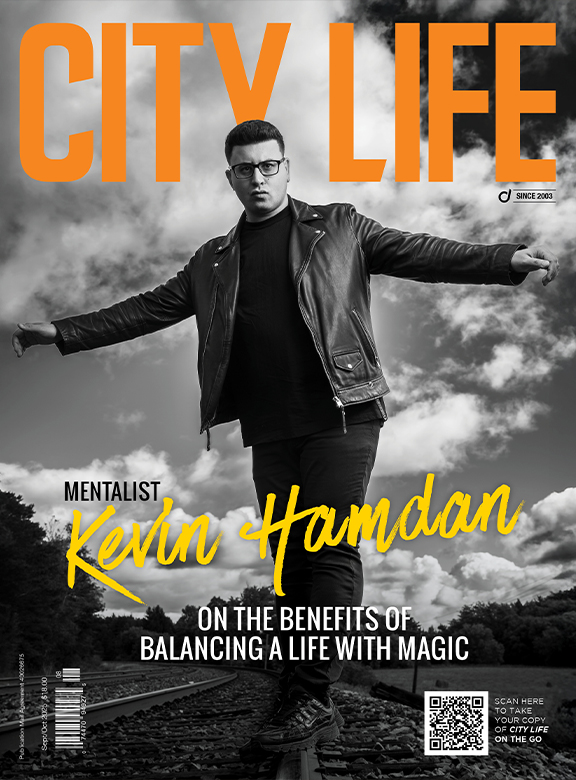
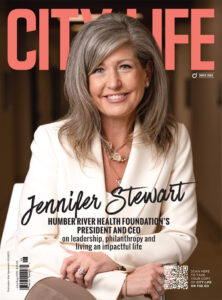








































































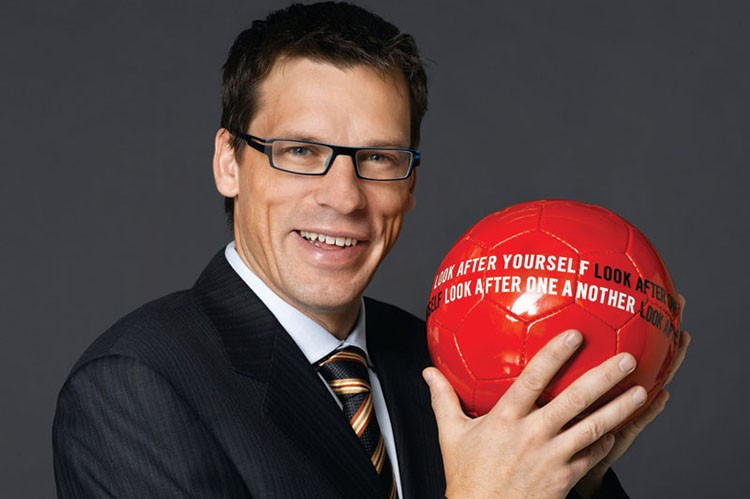
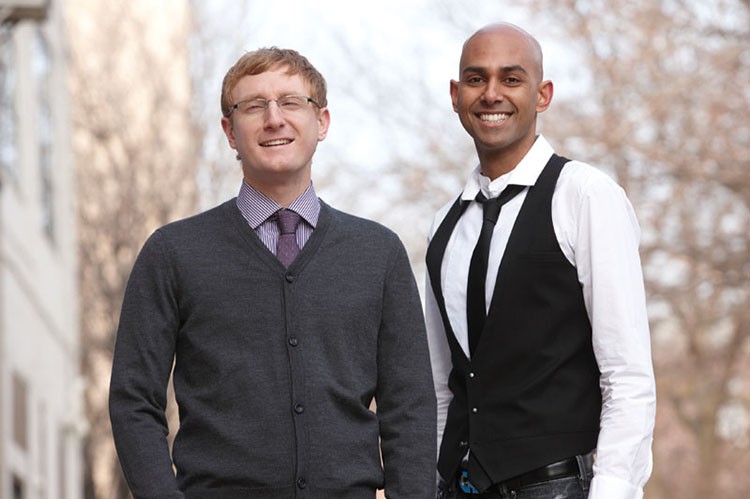
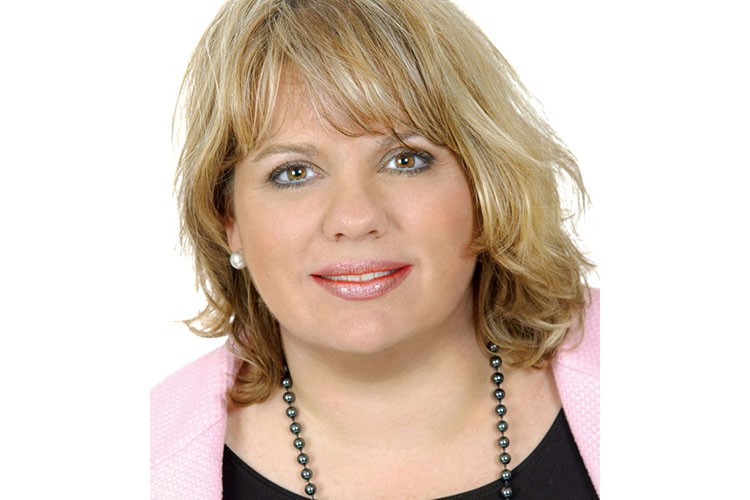
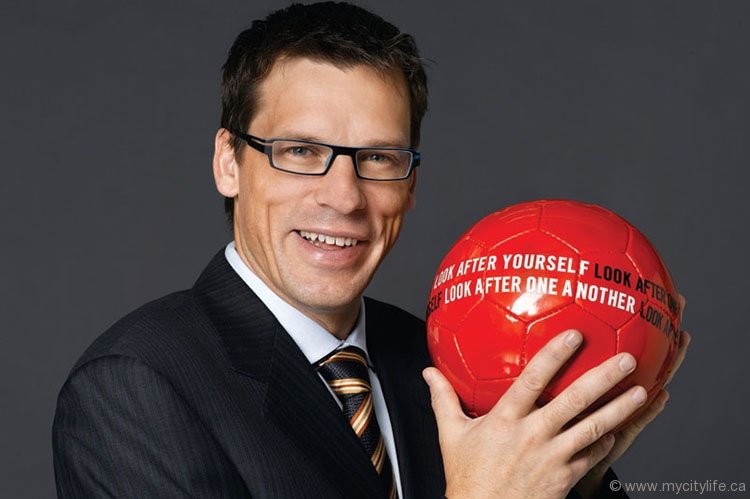


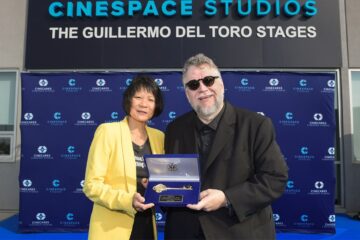



No Comment